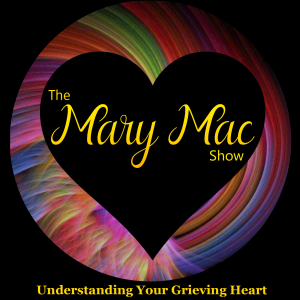
In Episode 142, we discuss what happens when a loved one’s death caused extreme embarrassment for you and the family and how to release that pain so you can build a new life.
Maybe your loved one experimented or was deep into opioid drugs, heroin, cocaine, fentanyl. Maybe they have been involved in gangs. Perhaps driving while under the influence of drugs or alcohol. Involved in domestic abuse of their spouse or even decided to take their own life.
All of these situations are the direct result of their personal behavior and decisions they made in their lives.
And, unfortunately, they can bring great embarrassment to you afterwards.
In this week’s episode I delve into the great pain you feel after they’ve died and left the mess they did for you.
To save face, many families will not talk about what happened.
They may tell all kinds of tails, especially to younger children, about how a person died. Maybe even telling them a family member died of cancer instead of AIDS, or an accident when it was suicide.
They will say things like they ‘accidentally overdosed’ or they will not disclose in their obituary how they died.
They will use words like ‘died unexpectedly’ but they never tell the entire story.
Now there are a lot of connotations to those two possibilities.
And it leaves people to wonder if the death was much worse than it really was.
A person could have ‘died unexpectedly’ in a car crash, heart attack, stroke, died in their sleep. So many ways. But none of those would cause the family to be embarrassed, now would they?
I guess I’m perplexed about how someone can ‘accidentally overdose’. They knew they were taking the drugs. They knew how much they were taking. They knew the risks involved with such powerful drugs. And when they reached out to a drug dealer, they knew they were putting themselves in great harm.
There wasn’t anything ‘accidental’ about it. And the possibility that they actually wanted to take their life using drugs still floats out there. But many families don’t want to entertain that thought.
When someone gets into a car and they’ve been drinking and taking drugs, they know the risk of killing others and themselves but that wasn’t their priority at that time. So when they kill others and themselves in that car crash, their family is devastated. Along with the family of those he or she killed with their recklessness.
If someone joined a gang, more than likely they had to prove themselves by killing someone, usually an innocent person. And then when they themselves are killed along the way, their family is embarrassed and distraught for what they did.
If a husband or wife is accustomed to beating on their spouse and this is a continual occurrence, and then one day they go too far and the battered spouse is killed, maybe to make the news in the papers, how difficult is it for the surviving family to endure.
Perhaps they took their own life, in so many manners – drugs, hung themselves, drove their car into a lake, stockpile, a huge truck or even used a gun to kill themselves. Suicide is not accidental by any means.
In this week’s episode I encourage survivors to get brutally honest about what really happened because if you’re still lying to yourself, you will stay stuck in your grief and not allow yourself to rebuild a life where you thrive.
So listen in to Episode 142 to learn ways to deal with this.
Blessings to you.
xoxo
Additional Notes:
If you are ill or grieving a loved one’s death, take the time to research a hotline with trained counselors to speak with.
The very best individuals to connect with are those who are suffering your exact type of death. Go here.
If my podcast has helped you, I’d love for you to make a donation to show your support! Thanks!